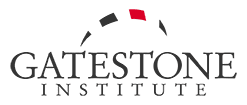In this mailing:
by Soeren Kern • November 8, 2015 at 5:00 am
- German hospitals are increasing security to protect doctors and nurses from violent attacks by migrants who are unhappy with the medical treatment they are receiving.
- Critics are warning that German taxpayers will end up paying billions of euros to provide healthcare for a never-ending wave of asylum seekers. This is in addition to the billions of euros already being spent to provide newcomers with food, clothing and shelter.
- In addition to the massive economic and social costs, as well as the burden of increased crime, including a rape epidemic, Germans are now facing the risk of being exposed to exotic diseases — and tuberculosis.
- Roughly 5% of asylum seekers are carrying resistant germs. In real numbers, this works out to around 75,000 newcomers with highly infectious diseases. — Dr. Jan-Thorsten Gräsner, director of the Institute for Rescue and Emergency Medicine.
- Twenty types of vaccines are now in short supply, and 16 others are no longer available at all. Because of production bottlenecks, some vaccines will not become available until 2017.
- Muslim women refuse to be treated by male doctors, and many Muslim men refuse to be treated by females. — Max Kaplan, director of the Bavarian Medical Board.
- German media outlets are downplaying the extent of the healthcare problem, apparently to avoid spreading fear or provoking anti-immigrant sentiments.

A migrant from Africa is shown in a Spiegel TV news segment from this month, being treated in a special unit for the involuntary quarantine of tuberculosis patients, at Parsberg District Hospital #1, in Bavaria.
|
The influx of more than one million asylum seekers from Africa, Asia and the Middle East is placing unprecedented strain on Germany's healthcare system.
Hospitals, clinics and emergency rooms across Germany are being filled to capacity with migrants suffering maladies of all kinds, and medical personnel, including thousands of volunteers, are increasingly complaining of burnout.
Diseases are also reappearing that have not been seen in Germany for years. German public health officials are now on the lookout for Crimean Congo hemorrhagic fever, diphtheria, Ebola, hepatitis, HIV/AIDS, malaria, measles, meningitis, mumps, polio, scabies, tetanus, tuberculosis, typhus and whooping cough. As refugee shelters fill to overflowing, doctors are also on high alert for mass outbreaks of influenza and Norovirus.
by Burak Bekdil • November 8, 2015 at 4:00 am
- AKP supporters celebrated their victory on November 1 with chants of "Allahu Akbar" ["Allah is the greatest"], an Islamist slogan, indicating that for them the political race in Turkey is in fact a "religious war."
- The Turkish "Sultan wannabe" runs an empire of fear. The November 1 vote will only help make him even more despotic.
- A recent study found that only a quarter of Turks were NOT afraid of Erdogan. According to the research, even some of his own supporters are afraid of him.
- "The rapidly diminishing choice of media outlets and restrictions on freedom of expression in general impacted the process and remain serious concerns." -- Ignacio Sanchez Amor, Organization for Security and Co-operation in Europe
- The AKP's setback in last June's elections was because some nationalists disapproved of the AKP's peace process with the Kurdish minority. In July, the government scrapped the peace process and ordered the military relentlessly to bomb the strongholds of militant Kurds in northern Iraq.

Turkish President (then Prime Minister) Recep Tayyip Erdogan, right, meeting with Hamas leaders Khaled Mashaal (center) and Ismail Haniyeh on June 18, 2013, in Ankara, Turkey. Mashaal, last week called Erdogan to convey Hamas's congratulations on Turkey's "democratic electoral environment." (Image source: Turkey Prime Minister's Press Office)
|
Once again, after a brief pause, political Islam has won in Turkey. President Recep Tayyip Erdogan's Islamist party, the Justice and Development Party (AKP), earned nearly one out of every two votes in the renewed parliamentary elections on November 1. The AKP won more than 4.8 million new votes since the June 7 elections, in which it had lost its parliamentary majority for the first time since it came to power in 2002. The November 1 election gave the AKP a mandate to rule until 2019; by then Turkey's Islamists will have been in power uninterruptedly for 17 years. There are happy smiles on the faces of half the Turks.
The AKP's unexpected landslide victory can be explained in numbers. The party won by 9 percentage points more on Nov. 1 than on June 7, just five months before. How did this happen?
|



